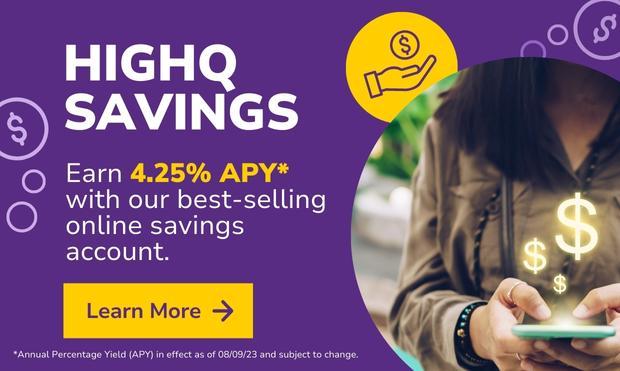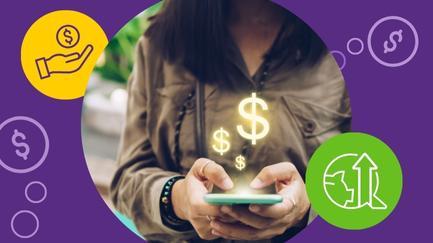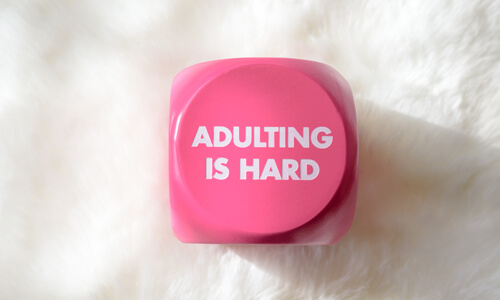If you’re seeking financial aid as a college student, a high school senior or a parent of a college-age child, you likely have questions about where to look, in particular the popular Free Application for Federal Student Aid (FAFSA). We have the answers along with ideas for additional resources to help you pay for college.
But first, what’s the total cost of college nowadays?
Although tuition varies by institution (public vs private, in-state vs out-of-state, two- vs four-year), it’s only part of the total cost of attending college. Additional expenses include housing, meals, textbooks, supplies and transportation. Some schools also charge fees for athletic programs, library or lab access and more.
According to the College Board, the current average annual cost to attend college is as follows:
- Public two-year, in district (commuter): $19,230
- Public four-year, in state (on-campus): $27,940
- Public four-year, out of state (on campus): $45,240
- Private non-profit four-year (on campus): $57,570
What are the primary sources of financial aid?
Financial aid comes from five primary sources:
- Federal government: Completing the FAFSA is the first step to learn which loans, scholarships, grants or work-study programs you qualify for based on your unique situation. Applying as early as possible puts you in the best position to access the limited funding available from federal programs like the Federal Pell Grant and Federal Supplemental Education Opportunity Grants along with Federal Subsidized and Unsubsidized Direct Loans, which are typically the least expensive student loans with the most repayment options.
- Your state: Some state-specific financial aid programs supplement federal ones. Examples include Texas’s Tuition Equalization Grant Program (TEG), the Iowa Tuition Grant and the Illinois Student Assistance Commission’s (ISAC) Monetary Award Program (MAP), which gives out over $400 million in grants to Illinois undergraduates demonstrating financial need. Connecting with your state’s education department early in the college application process will ensure you don’t miss the chance to access these unique college-funding opportunities.
- Your institution: Most colleges also offer their own financial aid programs. To qualify, you may need to provide detailed information about your enrollment history, family’s financial situation and more.
- Scholarships: Search for scholarships through free resources like Scholarships.com and BigFuture. Many schools, organizations and even individuals award scholarships based on things like financial need, academic standing, athletic performance, interest in a particular area of study or affiliation with a specific organization. Students can be eligible for more than one scholarship, increasing the amount of money they get to pay for college. Some colleges require students to fill out a College Scholarship Service (CSS) profile to be considered for their scholarships. Used by over 250 schools to help students locate over $10 billion worth of scholarships and other academic aid, it costs $25 for an initial CSS profile and around $16 for additional ones. These fees are often waived for low-income families.
- Private student loans: Once you’ve completely exhausted all financial aid via the FAFSA and scholarships, you may still need additional funds to pay all your college expenses. In that case, private student loans (offered by financial institutions) can bridge the monetary gap. As with any other type of loan, be sure you fully understand the terms, conditions, repayment schedule and interest rate before signing on the dotted line.
When is the FAFSA available and when is my application due?
The FAFSA for the 2024-25 academic year “soft-launched” on December 30, 2023 (meaning the form is periodically available), later than recent years in which it became available on October 1 for the following academic year. This is because it is being redesigned to implement the final requirements of the FAFSA Simplification Act, which has been gradually implemented since the 2021-22 award year.
The new form has fewer questions and is easier to complete, especially because it pulls tax filer data directly from the IRS. The other major change on the new form is that the Expected Family Contribution (EFC) has been renamed the Student Aid Index (SAI) to better reflect this calculation’s purpose in determining a student’s eligibility for financial aid.
The federal deadline for submitting your FAFSA for the 2024-25 academic year is June 30, 2025. Any corrections or updates must be submitted by 11:59 pm CT on Sept. 14, 2025.
While the federal government provides ample time to submit the FAFSA, many states and colleges have their own deadlines, which don’t always coincide with the federal one. Go here to find your state’s deadline and check with your college choice(s) about theirs. Many states and colleges provide aid on a first-come-first-serve basis, so apply as soon as possible for the best chance of getting aid.
Who’s eligible for the FAFSA?
The following criteria qualifies you for FAFSA:
- Demonstrated financial need
- U.S. citizen or eligible noncitizen
- Social Security number (unless you are from the Republic of the Marshall Islands, Federated States of Micronesia or the Republic of Palau)
- Enrolled or accepted for enrollment as a regular student in an eligible degree or certificate program
- Satisfactory academic progress in college or career school
- High school diploma or recognized equivalent
Additional FAFSA eligibility requirements can be viewed here.
How do I apply for the FAFSA?
Before you can apply for FAFSA, you must create an FSA ID, which requires a Social Security number and either a mobile number or email address.
Once the FAFSA for the appropriate award year becomes available, you can access it using your FSA ID to complete and submit it electronically at StudentAid.gov or via the myStudentAid app. You still have the option to print, complete and mail a paper application, but this isn’t recommended for several reasons:
- Online applications are simpler to complete and generally result in fewer errors because they are designed to detect common mistakes and typos.
- Your application is also likely to be processed sooner when submitted online.
- The redesigned FAFSA starting for the 2024-25 academic year automatically populates tax filer information from the IRS.
What are common mistakes people make filling out their FAFSA?
Mistakes can delay your application and limit your eligibility for aid. To avoid these common errors, read every question carefully and review your application before submitting it:
- Leaving blank fields. Enter a “o” or write “Not applicable if a question doesn’t apply to you.
- Using commas or decimal points in numeric fields. Instead, round to the nearest dollar.
- Listing an incorrect Social Security number or driver’s license number. Triple-check them for accuracy.
- Providing the wrong address. Use your permanent address to avoid confusion.
- Forgetting to list your college. Look up and list the Federal School Code for the college you plan to attend or those you’ve applied to. Starting with the 2024-25 FAFSA, you can list up to 20 schools.
- Forgetting to sign and date. This is crucial!
Can I apply for the FAFSA as an independent?
If your parents aren’t paying any part of your college tuition, you may be able to apply for FAFSA as an independent—meaning your parent’s income won’t be considered for your eligibility for aid. Meeting any of these criteria qualifies you as independent:
- 24 years of age by Dec. 31 of the award year
- An orphan (both parents deceased), in foster care or a ward of the court at age 13 or older
- A veteran of the Armed Forces of the United States or serving on active duty
- Working toward a master’s or doctorate degree
- Legally married
- Have legal dependents (excluding a spouse)
- An emancipated minor or in legal guardianship
- Homeless
If you don’t meet any of these requirements, consider contacting a financial aid administrator to discuss your options. Still have questions about applying for financial aid? Visit FAFSA Help. Likewise, a financial counselor at your high school or preferred college can provide FAFSA assistance and point you toward scholarship opportunities.






Comments Section
Please note: Comments are not monitored for member servicing inquiries and will not be published. If you have a question or comment about a Quorum product or account, please visit quorumfcu.org to submit a query with our Member Service Team. Thank you.